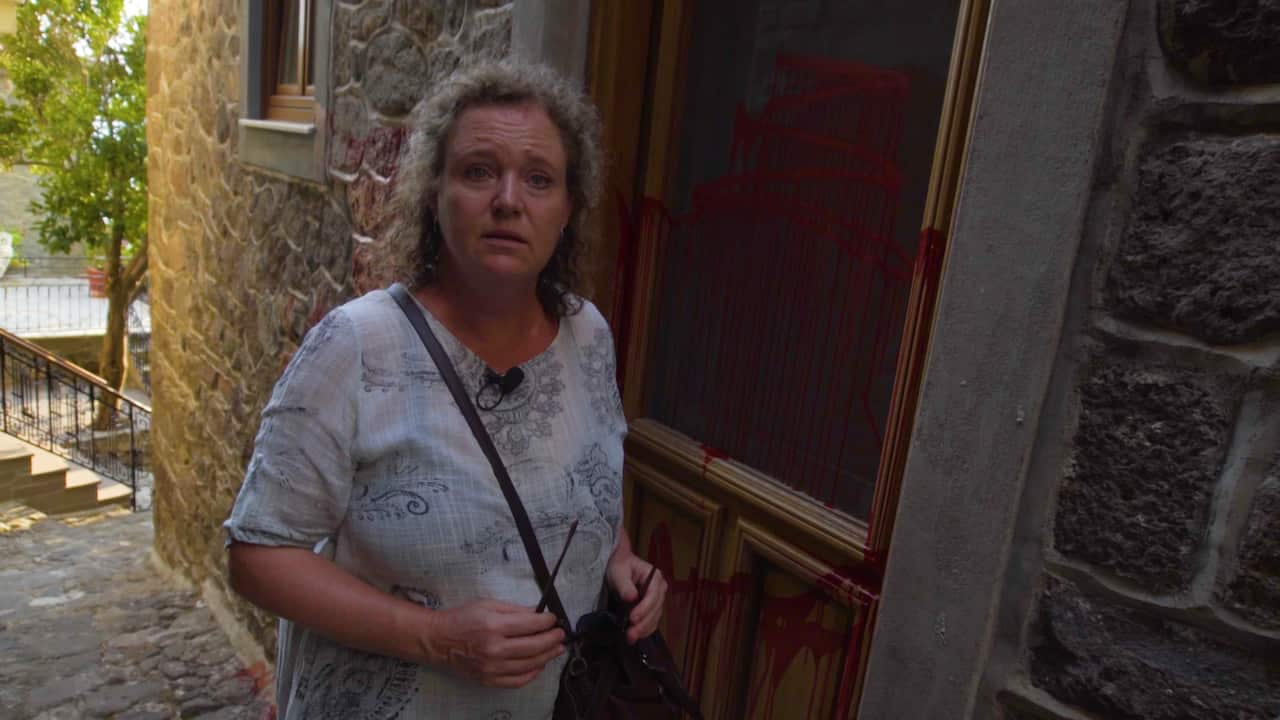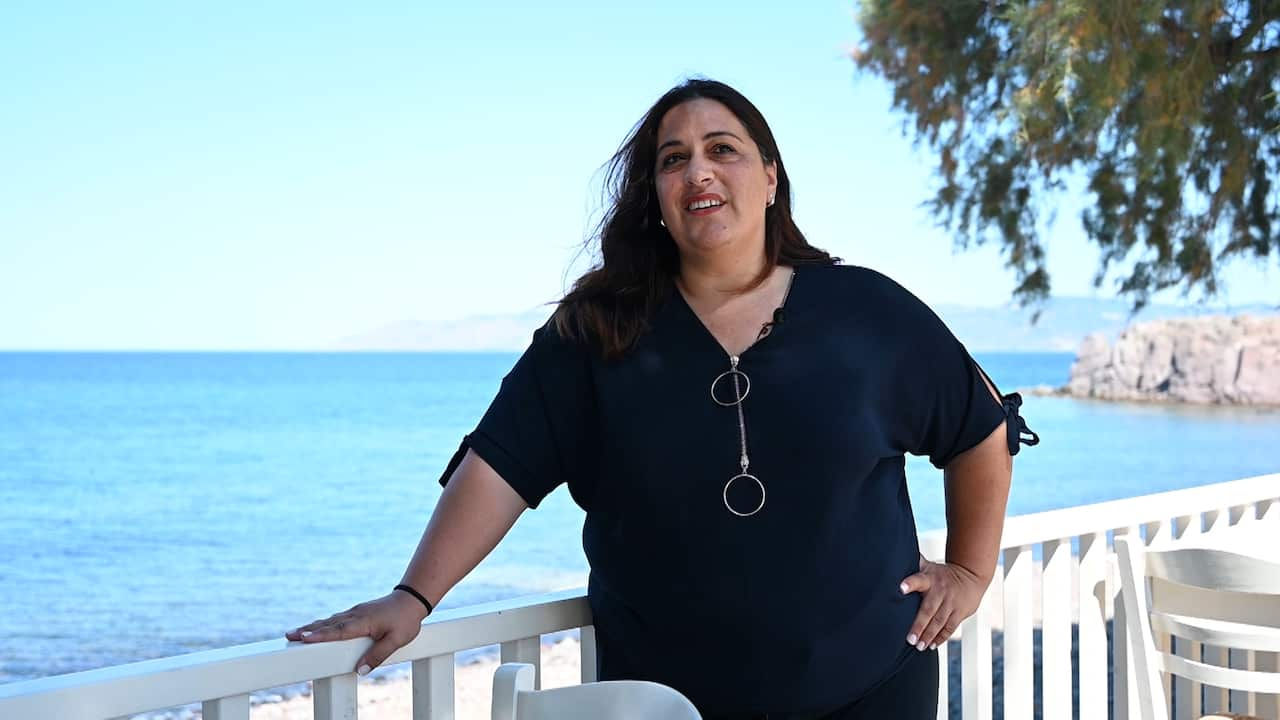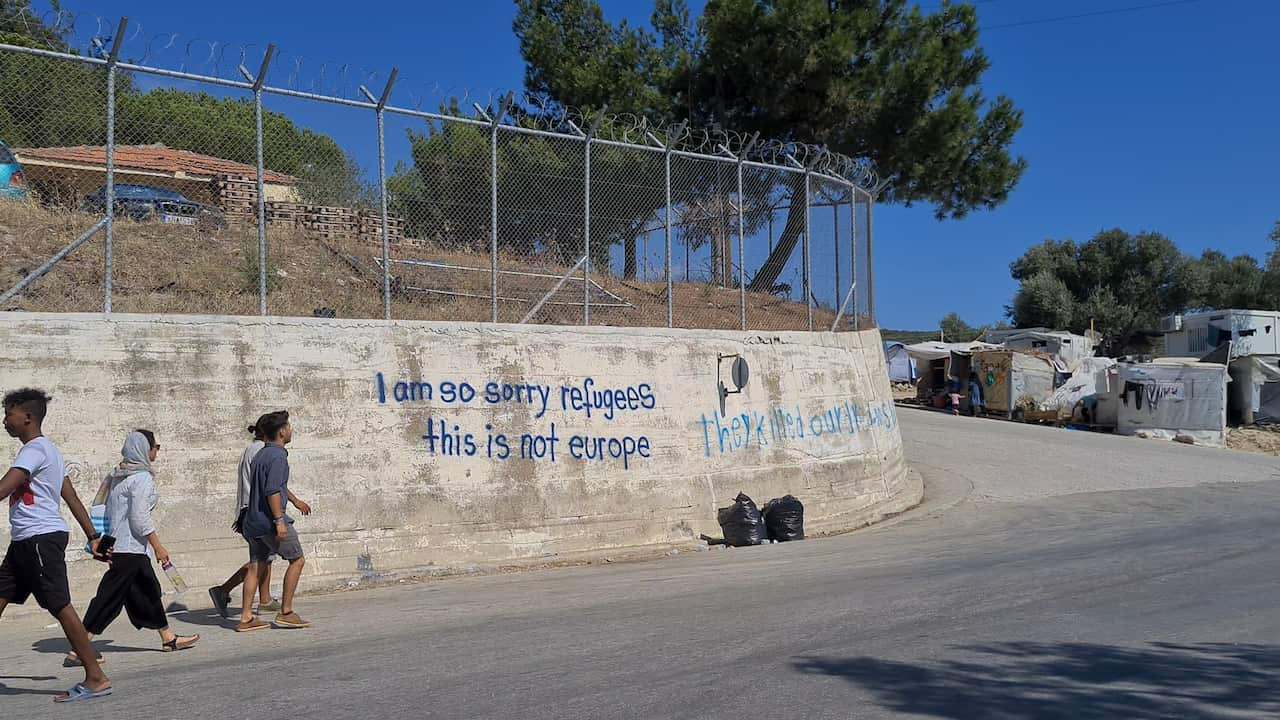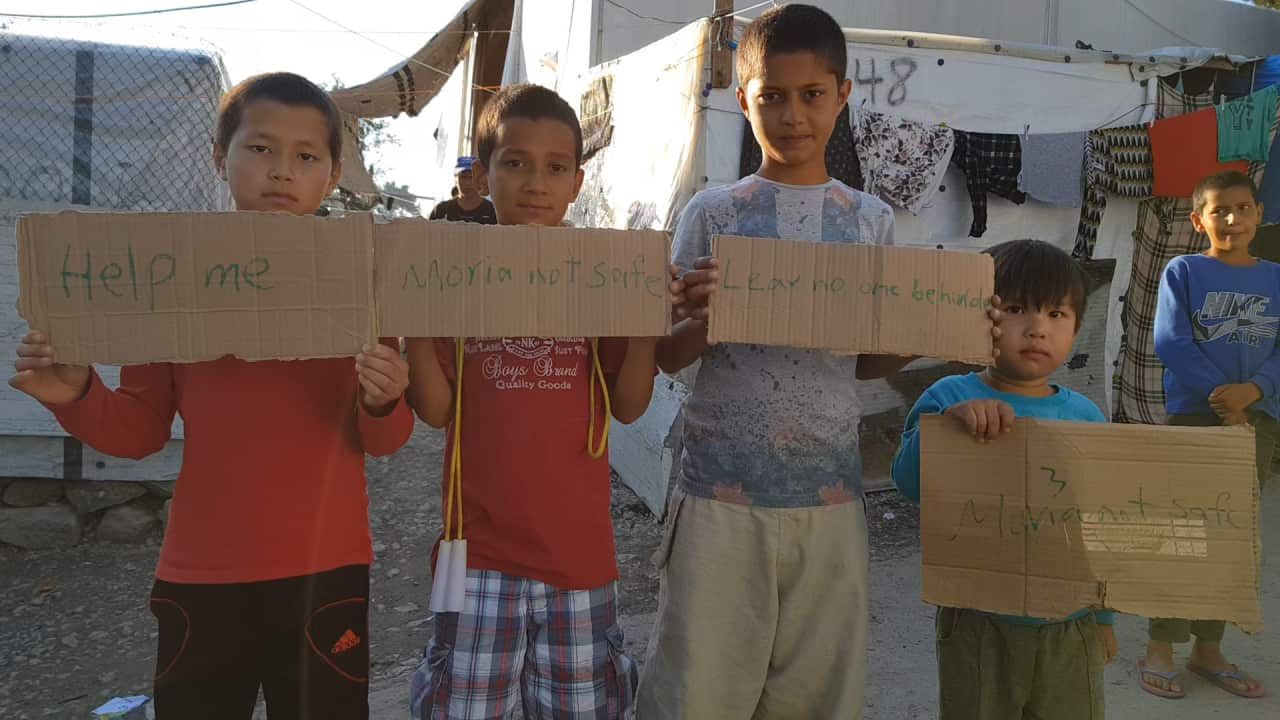The Greek island of Lesbos is a powder keg of tension, where conflict among Lesbos locals – known as Lesbians - is turning ugly.
In one corner are locals concerned with Lesbos’ “refugee island” reputation and its negative effects on the island’s fragile tourism industry.
In the other corner are locals who see it as their duty to provide safe haven to people fleeing war and persecution.
The stepping-stone island
Lesbos’ super close proximity to Turkey has seen Greece’s third-largest island become a stepping stone into Europe for asylum seekers from the Middle East and Africa.
Nowhere else in Europe was used as a greater thoroughfare during the so-called “refugee crisis” of 2015.
More than a million asylum seekers entered the EU that year; Over half of them landed on Lesbos.

Melinda McRostie, an Australian-Greek restaurant owner and director of the NGO, Starfish Foundation, outside her recently vandalised property on Lesbos, Greece. Source: Dateline
Lesbians divided
Australian-Greek Melinda McCrostie is a unique Lesbos local: she’s both a tourism operator and the director of an NGO that supports asylum seekers.
Her waterfront restaurant in the tourist town of Molyvos should be buzzing with summer visitors.
Instead, with the coronavirus pandemic it’s so quiet she’s planning to close shop early for the season.
But something else is causing her grief: her fellow locals who claim asylum seekers are driving tourists away.
Red paint has recently been splattered over one of Melinda’s holiday rental properties.
A few weeks before, the words “Slut NGO” were crudely spray-painted in Greek letters on another property.
A restaurateur by trade, Melinda set up the NGO, Starfish Foundation, in response the 2015 refugee crisis.
That year, hundreds of thousands of asylum seekers who had made the treacherous Aegean Sea crossing from Turkey literally arrived on her restaurant’s doorstep. Today, Starfish Foundation supports asylum seekers in the island’s notorious Moria Refugee camp.
Today, Starfish Foundation supports asylum seekers in the island’s notorious Moria Refugee camp.

Hotel Aphrodite, owned by Aphrodite Vati, in Lesbos, Greece. Source: Dateline
But not all Lesbos locals agree with Melinda’s willingness to help the new arrivals.
“Does one have to choose between humanity and tourism?" she says.
“Well people are choosing between the two, but I don't think one should."
This stance however, has come at a personal cost: “I live in a village of about a thousand people where I was brought up.
“Most of the village, most of my friends don't speak to me anymore,” she says.
A great injustice
Greek-American hotel owner Aphrodite Vati lives in the same town as Melinda but sits on the other side of the fence with her views on asylum seekers on Lesbos.
Aphrodite is also the Deputy Mayor for Tourism for West Lesbos; a position she entered after also witnessing the refugee crisis firsthand. She says Lesbos’ tourism sector took a serious hit when the crisis struck the island in 2015.
She says Lesbos’ tourism sector took a serious hit when the crisis struck the island in 2015.

Aphrodite Vati, hotel owner and Deputy Mayor of Tourism for Western Lesbos. Source: Dateline
That year, she says her beach-front hotel experienced up to eight asylum boats landing at her business each day.
“This had as a result for us to be up to 80 per cent down in revenue, which was a catastrophe,” she says.
Today Aphrodite is fighting to restore the island’s image: “People think that the Island is overflowing with refugees, and this is unfair.
“I think a great injustice has been done to the Island of Lesbos,” she says.

Asylum seekers walk past a sign at the Moria Refugee Camp on Lesbos island, Greece. Source: Dateline
Summer in the time of Coronavirus
Tourism accounts for about 20 per cent of Greece’s GDP and one quarter of jobs.
There’s little wonder then why Greece was one of the first European countries to lift COVID-19 entry restrictions at the start of summer.
But the gamble looks to have been mostly unsuccessful. Tourist arrival numbers have been low while Coronavirus infection cases – many imported by visitors – have been steadily growing.
This economic blow to Greece – keenly felt on Lesbos – is fanning the flames of tension and discontent among locals who feel they have already been disadvantaged by the “refugee island” reputation.










